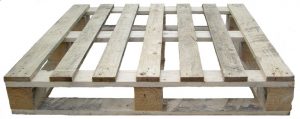A man who tripped and fell at a large chain store while purchasing a watermelon has won a $7.5 million verdict against the store. 
The incident happened in Alabama, and a local jury decided the premises liability lawsuit in his favor, awarding him $2.5 million in compensatory damages and $5 million in punitive damages.
According to AL.com, the plaintiff was shopping at a when he reached into a container to pull out a watermelon to put in his shopping card. However, he reportedly tripped and his foot became lodged in a wooden pallet that was the floor. He fell, suffering numerous injuries, including a broken hip. According to plaintiff attorneys, the container of watermelons was situated on a wooden pallet that was not visible upon approach. Although plaintiff didn’t step onto the wooden pallet, his foot slid into a side opening as he pulled out the melon and got stuck. Then when he turned to put the melon the cart, his foot was immobile and he fell.
As our Florida slip-and-fall lawyers can explain, those kinds of damages aren’t necessarily typical in a slip-and-fall lawsuit, but they aren’t impossible either. First, we have to look beyond simply what the medical expenses were, and take note of the fact that this was an individual who was once very active. He is an Army veteran and it was typical for him to play basketball with friends three to four times a week. After his fall, his life was completely altered. He underwent surgeries. He is no longer able to maintain that active lifestyle he once enjoyed.
Secondly, we have to note the fact that punitive damages were involved. In Florida, not every plaintiff in a personal injury lawsuit will be allowed to pursue punitive damages. F.S. 768.72 restricts the ability of plaintiffs to pursue punitive damages (damages intended to punish the defendant, rather than merely compensate the plaintiff) unless there is a reasonable showing by the evidence that defendant was personally guilty of either:
- Intentional misconduct. In other words, defendant had actual knowledge of the wrongfulness of the action and high probability of injury or death, and despite that knowledge, intentionally pursued it anyway.
- Gross negligence. To prove gross negligence, one must show defendant’s conduct was so reckless or wanting in care that it amounted to a conscious disregard or indifference to life, safety or the rights of other persons exposed to that conduct.
Alabama has its own set of laws about how punitive damages and when they are allowable, but most states do have restrictions and many require a judge’s approval at the outset of the case.
This claim alleged negligence as well as wantonness of action. The store owed a duty to its customers to exercise reasonable care in maintaining and keeping its property in a reasonably safe condition, or else to warn the public if there were hazardous or unsafe conditions on site. Plaintiff attorney alleged the store should have known the pallet was hidden and that it was likely to cause injury. The store should have covered the pallet so that it would not be able to ensnare the shopper’s foot. Failure to act on that knowledge, plaintiff attorney argued, it amounted to wantonness.
The company has announced its intention to appeal, arguing the display did not pose a danger and that the damage award was excessive.
Call Associates and Bruce L. Scheiner, Attorneys for the Injured, at 1-800-646-1210.
Additional Resources:
Walmart shopper hurt while buying melon wins $7.5M verdict, Nov. 9, 2017, Associated Press
More Blog Entries:
Premises Liability Case Involving Injury to Young Boy Will Proceed, Court Rules , Oct. 15, 2017, Fort Myers Slip and Fall Lawyer Blog
 Florida Injury Lawyer Blog
Florida Injury Lawyer Blog





